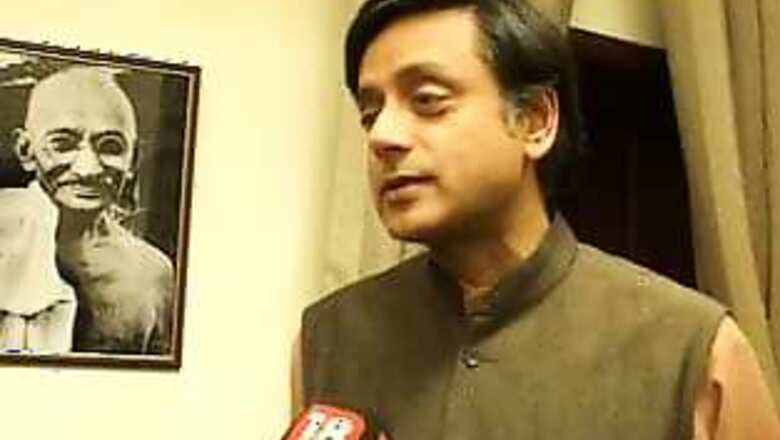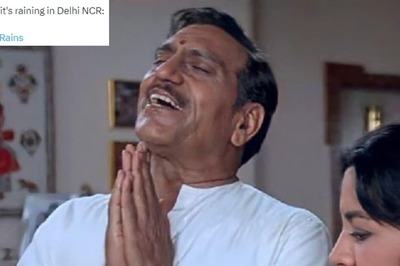
views
New Delhi/Beijing: Wary of the Chinese practice of using state-controlled media to air provocative views, India on Tuesday described as a "bit silly" a Chinese daily's comment that India had not learnt its lessons from 1962 war. "Such language" will not help bilateral ties, India underlined.
India's reaction came on a day China voiced its "strong dissatisfaction" and accused India of "disregarding the solemn position of China" in allowing Tibetan spiritual leader the Dalai Lama to visit Tawang in Arunachal Pradesh, which Beijing claims to be part of what it calls "south Tibet".
"Talk of India not learning lessons from 1962 is silly. We are far from 1962 and history does not always repeat itself," Minister of State for External Affairs Shashi Tharoor said in New Delhi.
"We are not woefully prepared as we were in 1962 and such language will not help. China's articulations in recent weeks have been nothing but an irritant," Tharoor said.
He was reacting to a report published in China's state-run newspaper Global Times in which Hu Shisheng, a researcher at the China Institutes of Contemporary International Relations, said that India seemed to have "forgotten the lesson" of the 1962 war.
"India may have forgotten the lesson of 1962, when its repeated provocation resulted in military clashes. India is on this wrong track again," Hu wrote.
"When the conflict gets sharper and sharper, the Chinese government will have to face it and solve it in a way India has designed," he wrote.
Hu's remarks were seen here as a sign of China's increasingly aggressive posturing and its unhappiness with New Delhi for letting the Dalai Lama visit Arunachal Pradesh, India's northeastern state over which Beijing claims sovereignty.
Venting its "strong dissatisfaction" with India, Chinese Foreign Ministry spokesman Qin Gang on Tuesday said in Beijing that India had ignored requests to stop the Dalai Lama's trip to Arunachal Pradesh.
"The Indian side disregarded the solemn position of China in allowing the Dalai Lama to visit the disputed area of the eastern section of the China-India border region," Qin told reporters.
"China expresses strong dissatisfaction about that."
The visit "fully exposes the Dalai Lama's separatist nature," Qin said. "His attempt will not succeed."
However, India on Monday made it clear that the Dalai Lama's visit to the state was on his own initiative and underlined it had nothing to do with it.
"The Dalai Lama is free to travel anywhere in India... I have not heard the suggestion comes from us as we do not deal with the spiritual travels of spiritual leaders. He has to visit his flock as he sees fit," Tharoor had said on Monday.




















Comments
0 comment